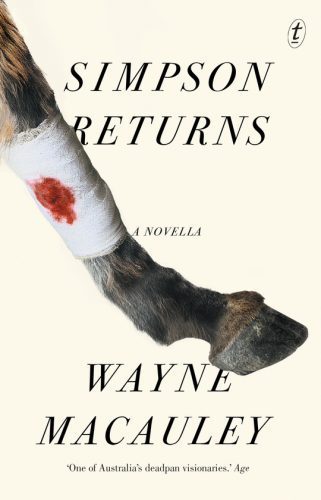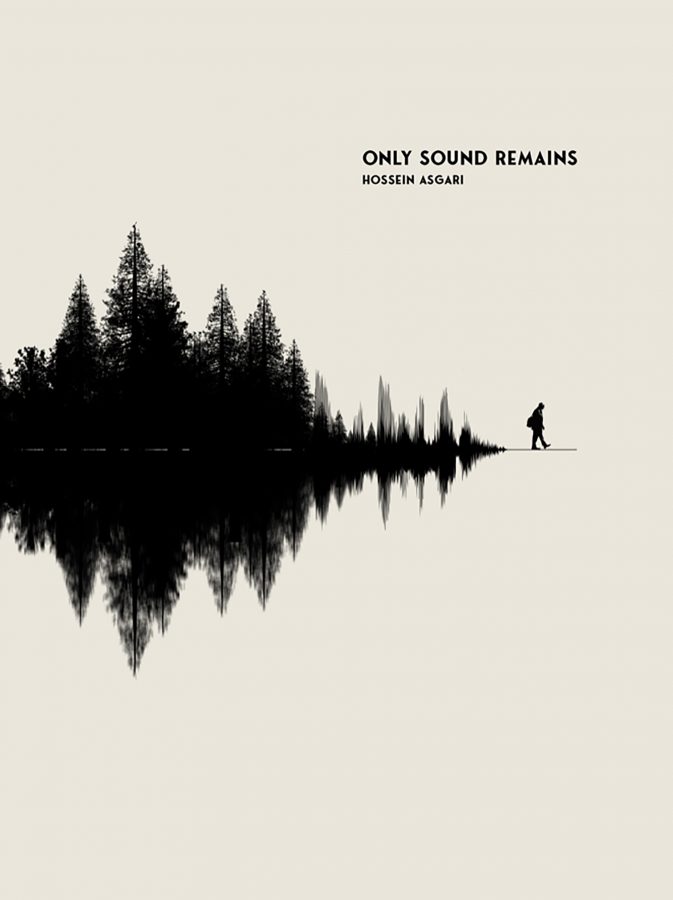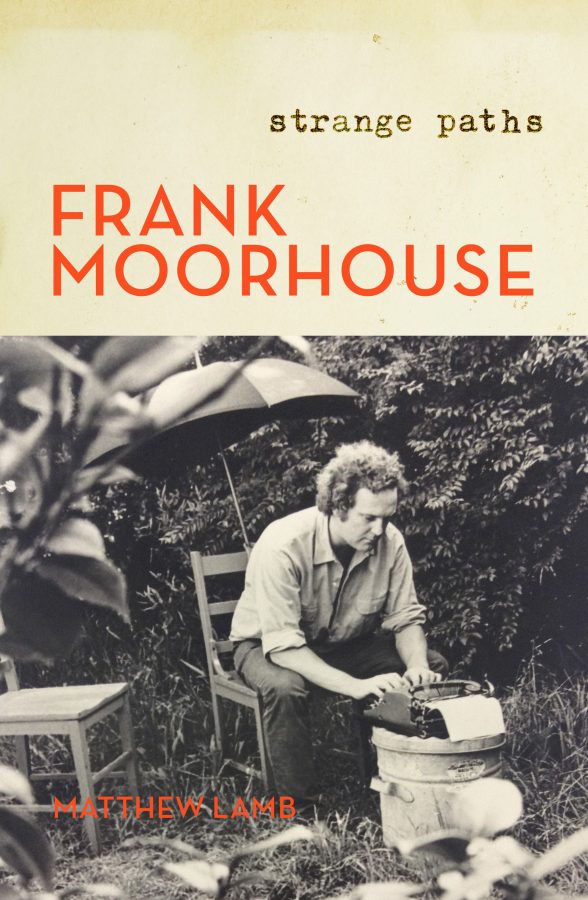The Other Way, The Other Truth, The Other Life: Simpson Returns
There are many ideas of difficulty and struggle in relation to writing. One that is sometimes forgotten when a writer achieves a level of prominence is the struggle involved in finding a publisher and an audience. With Wayne Macauley some of these difficulties are clearly signalled, with post-it notes helpfully attached to signposts alerting fellow travellers to the challenges faced by writers who write in ways that might be considered atypical or difficult in the industry of Australian publishing in the early twenty-first century.
On the website of the small press Black Pepper, who published Macauley’s first two novellas, Blueprints for a Barbed-wire Canoe (2004), and Caravan Story (2007), readers will find a 2008 Meanjin essay by Macauley called ‘The Other Way’. This essay underlines the problems writers like Macauley have in finding, not so much readers, as publishers willing to support fictional works that are not readily classifiable within clearly established generic categories.
Indeed, the theme is openly addressed in his fiction: Caravan Story takes as its subject the lack of value accorded certain kinds of creative writing within the cultural industries that serve Australia. Here, a couple are plucked from their suburban home and taken to a kind of camp where they are asked to create. While some manage to eke their way in working through established and marketable forms and genres, those who don’t fit within these confines have their work consigned to the rubbish tip.
Macauley’s most recent work, Simpson Returns (2019), brings some of these struggles back to the surface, since the novella begins with a note that states, ‘The following events are assumed to have taken place over the course of roughly six weeks in the early part of 2003’. That is, a year before Macauley published his first novella. Macauley had already placed a number of short stories in literary journals throughout the 1990s and had worked extensively in theatre. More tellingly, he had also published a short story with Westerly in 2001 called ‘Simpson and his Donkey go Looking for the Inland Sea’, and this story, which includes marked ellipses, seems to be edited from a longer work. Moreover, it is comprised of earlier versions of passages that appear in the opening and closing sections of Simpson Returns.
The Melbourne critic Emmett Stinson has completed major research into the Australian publishing industry and, in a talk given in Sydney in 2017 he shared data demonstrating how the publication of short stories — the genre with which Macauley and many other writers began to develop their craft — reached a point of crisis in the late 1990s and early 2000s in Australian publishing. At the very time Macauley was emerging as a writer Australia’s most established publishers had begun to turn away from publishing short-form literary fiction. That is, from available evidence it seems likely that Simpson Returns, or an earlier version of it, was written between 2001 and 2003, and one might speculate that Macauley could not find a publisher for it then.
Macauley’s first two novels with Black Pepper were critically well-received, but otherwise somewhat low profile. His story shifts, however, in 2011 when his third novel, The Cook, was published — by Text. This novel represented a breakthrough in Macauley’s career: it was nominated for numerous awards and the author was suddenly sought after to give interviews and make appearances. The critical acclaim and attention that followed The Cook established Macauley as a ‘new’ voice and no doubt contributed to Text’s decision to republish his first two novels. There is a story waiting to be told about Macauley, then, that relates to the business of writing and the Australian literary eco-system, through which he begins as an outsider before being welcomed, thankfully not too belatedly, and is diligently and resourcefully promoted by a publisher that has committed itself to the quality of his work.
If I were equipped to write an essay on book history addressing these questions, I would be concerned with what seems to be a paradox. Firstly, one is given to believe that the nature of Macauley’s encounter with literary form and the kinds of formal interactions that are necessary to his work would have discouraged the early reception of that work. Yet secondly, his case demonstrates that it is possible for the industry and Australian readers to engage with the kind of difficult thinking his works demand.
At the beginning of his essay ‘The Other Way’ Macauley recounts the story of receiving a rejection letter from a publisher. Perhaps it was a publisher rejecting an early version of Simpson Returns. In any case, the reader writing a report for the publisher gives as a major reason for rejection that ‘It’s very hard to make a definite assessment of this book’. Macauley glosses this analysis:
The reader, basically, was not able to easily sum up the book, identify its genre and therefore its market — and if they, the reader doing the reader’s report, were unable to sum it up and package it succinctly then how on earth would the marketing department? The book was rejected, in part, because the book could not easily be explained.
Many reviewers of Macauley (who is consistently positively reviewed) concur that it is difficult to categorise his works, which often seem to fall between genres. The description of ‘satire’ is often appended to them, no doubt to allay the perceived concerns of readers who need to know how they should be responding to the book they are about to begin. Yet other descriptive formal terms are used, like ‘parable’, ‘absurdist’, ‘elegy’, ‘fable’.
There is a formal distinction in literary criticism between genres and modes. A genre is considered to refer to sets of expectations, using themes, tropes and structures that are familiar to audiences who develop strong tastes for particular genres. Yet whereas the idea of ‘genre’ refers to a work as a whole, the idea of ‘mode’ refers to formal techniques that might be deployed at some times and not at others, so that a writer might make use of the mode of realism at certain times, and symbolism at others, or indeed use both modes together, for example. While genres are important to modes, since the technical elements that characterise genres can be made use of modally (that is, deployed strategically here and there to generate specific effects), writers who make use of modes very often mix these modes.
The structure of Simpson Returns is elegant and repetitive. Perhaps, indeed, this repetitive form (with new characters being encountered by Simpson whose back stories are then recounted) can at times be too clear, since once the formula is established and recurs the reader anticipates the repetition, yet on the whole the device serves its purpose. The background of the work as a whole, however, is ingenious.
We are introduced to the legendary hero of Gallipoli, Jack Simpson and his donkey ‘Murphy’. They exist in some twilight region between being and belief. In 2003 it is 88 years since their deaths at Gallipoli, but they have returned, seemingly for the nth and last time, to attempt to complete a quest. The quest has not yet been completed because their progress has been constantly interrupted by encounters with lost souls who require comfort. The quest involves making their way to ‘the inland sea’ somewhere in the middle of the Australian continent, so they might fill vials with water from that mythical sea and thereby regain their strength and continue their roles tending to anyone who has been wounded and broken by the false promises of Australian society.
These false promises are transmitted through folklore: the ‘fair go’, freedom and comradeship, and the prosperity and happiness built on the luckiness of this place. Indeed, Simpson, on one of his past trips, buried a copy of Donald Horne’s The Lucky Country along with other provisions, including hard liquor, under a tree, in the process alluding to yet another legendary episode from the history of colonial Australia, Burke and Wills and their ‘Dig Tree’. The legend of Lasseter’s Gold Reef is also mentioned. In each case the sustaining myths carry with them ideas of rescue, of relief if not quite salvation, foretold.
Many Australians will recognise these myths from their schooling and from the politicians and media who still revisit them. Most of these myths carry inflections of disappointment. The explorer Eyre, forced to turn back from seeking an inland sea by the great salt lakes of South Australia’s interior, names one of the hills he climbs to gaze towards the inland Mount Hopeless. Sturt, dragging a boat behind him into the Sturt and then Simpson deserts, understands at last that the inland sea he has long been searching for does not exist; Burke and Wills perish despite the rations of the Dig Tree; Lasseter’s reef of gold shimmers just out of reach for the average battler who might dream of stumbling across it, never being seen again once Lasseter announces it to the world; and Simpson and his Donkey can only offer heroic ministrations to a small number amidst a vast sea of suffering and death.
The matter behind the story — the events themselves and the myths they have been turned into — already carry resignation, inevitable defeat. They also carry misunderstanding, misreading and controversy. For example, some historians have raised small voices to claim that, rather than being a hero, the stretcher bearer Simpson avoided his duty to aid those on the front lines by finding a donkey, which would only allow him to work in somewhat safer regions away from the frontlines. Simpson Returns briefly touches on this idea of one who abandons his post and yet, almost by mistake, comes to be seen as a kind of ministering angel. Horne’s book, the title of which was intended to be ironic, has probably been read by few Australians, with most content to take the title on face value as affirming the wonders of the nation. Eyre, Sturt and Burke and Wills and many of the first settlers have sometimes been read as failing to see the land that was in front of them, instead anticipating places that might more readily resemble the European landscapes they had internalized, when in reality Australia had been cultivated and understood by the Aboriginal peoples for millennia.
The backgrounds of these myths, and the powerful sense of meaning they bring with them from constant retelling, offer rich foundations for Macauley. Over this he puts in place a recurring structure, where Simpson, interrupted in his journey to the inland sea, is stopped by figures in despair who litter the outer suburbs of Melbourne and then rural Victoria. No matter what direction they take Simpson and Murphy are waylaid by encounters of this kind with desperate and suicidal interlocutors. We meet an impoverished and desperate suburban mother whose attempt at murder-suicide comes to nothing as the pipe she attempts to fit to the exhaust of her car fails and her children wake up; a disabled farmer whose possessions are being embezzled from him systematically by a once estranged daughter; a refugee who has been cut off from hope of being reunited with this family; a young Aboriginal woman who has been the victim of a vicious gang rape; a mentally ill man who camps among the ruins of a former country hospital that has been shut down by the government.
In each case Simpson listens attentively to their stories. In each case he does his best to minister to them, with empathy, with any medicines he might have or can find, and even magic and ritual. None of them are properly healed, though all at least are momentarily buoyed by the encounter, and the feeling of care that is implied and remains inseparable from the legend of Simpson. It becomes clear too, that Simpson and his Donkey can only be seen by those who believe in them, though Simpson too at last begins to fade, with Laura, the young Aboriginal woman, ministering to him, trying to provide him with some of what has been there all along, though not seen, in the colonial misreading of the Australian landscape.
In 2012 Wayne Macauley participated in an event organised by the Wheeler Centre in Melbourne called ‘Truth is Stranger than Fiction: A Great Literary Debate’. I haven’t seen any text or recording that sets out Macauley’s intervention into this debate, which was advertised as a light-hearted ‘battle of wits’. Instead I’ll try and piece together a response based on the kind of writing Macauley develops.
When we are faced with a world whose problems all seem ‘wicked’ and intractable, what is it that fiction can do? Isn’t it always more useful to confront real instances of the problems we face through journalism, political essays and opinion pieces, or non-fictional representations of lived experiences of all kinds? Won’t those kinds of non-fictional intervention be more useful? At the very least if one is to attempt to engage with these things via fiction shouldn’t the mode the writer uses be sombre realism? Isn’t the mode of satire, which derives its impact in large part through humour (however dark), simply disrespectful of the enormity of suffering that is being experienced? Isn’t it inconsequential in relation to how actual problems might actually be solved?
No doubt it is true that the problems we are facing now, both as a society and as inhabitants of the planet are urgent and seemingly intractable. So much so that they might even bring one to real despair, real tears, like those recently shed by the Prime Minister of Tonga. One might easily despair in the face of the problems Simpson Returns chooses to treat, which have no doubt altered (in becoming still more acute in most cases) since 2003: Australia’s failed or flawed attempts to work with and empower Aboriginal and Torres Strait Islander peoples; Australia’s treatment of refugees; the cycles of poverty in which many Australians find themselves trapped. One might despair of the will to tackle these issues. One might —through non-fiction and political argument, say — cast light on them, rail against them, oppose them. Yet one of the things that seemingly contributes to the intractable nature of the problems is that we are increasingly working within a polarised political landscape in which the background narratives are deployed in such a way as to make any real dialogue between competing interests almost impossible. The ones who hear the rants and listen already believe what you believe, and those you seek to convince are merely hardened in their attitudes when they hear you.
Fiction has a power which is not available to forms of representation that claim to mobilise pure fact. That is, with fiction we are shown things that we do not consider to be factually true and because of this these things are distanced from us. Because of this, if a form can be found that is adequate to the task, fiction can allow us to feel and reflect on things that we might otherwise avoid trying to understand. Things that we either deliberately avoid engaging with or are psychological unable to cope with directly. Yet there is another thing that fiction is capable of. Paradoxically, fiction allows us to see how we are surrounded by and formed by stories. It allows us to see that many of the opinions we have mistaken for fact are themselves fictitious. Fiction shows us that the power of fiction extends into the so-called world of factual ‘truth’; that the idea of the truth is far more complex than data sets, or even first-hand non-fictional accounts of events.
If we are living in a world separated by bubbles, and if you are the kind of writer who is compelled to engage with this problematic by addressing things that are corrosive and damaging, what forms or techniques might you deploy to try to pop the bubbles? At least one reviewer has compared Simpson Returns with Don Quixote, and the connection is apt, just as the connection between Simpson and Christ on his donkey, seen by another reviewer, is equally apt. Whereas Christ, in seeking to teach people to love one another, made use of parables, Cervantes, in trying to find a way of understanding how fantasies of reality can encircle and constrain as well as ennoble us, created a complex new form, steeped in the mixture of realist and satirical modes, that would come to be considered the first modern novel.
While parable, efficiently deployed, can cut through because the moral teaching is clear and memorably conveyed, satire is more complex. It might even be said that ‘It is very hard to make a definitive assessment’ of the kinds of complexity satire conveys. Yet the power of the satirical mode resides precisely in its undecidable nature: because some problems are not easily solved. It is when we think that answers are easy and that we already have all the answers we need, that we fall into error. We have to be made to think, we have to be fooled into opening our minds.
Don Quixote in part involves a recognition of the damaging potentials of stories: if one has become so imbued with stories, like the chivalrous romance stories that have formed Don Quixote and other readers of his time, an inevitable distance arises between the world that one sees and the actual world. Don Quixote cannot see this distance because he lives within his bubble of representations. What characterises Don Quixote as satirical, is that it allows readers to see this gap, and the misalignment between what is believed to be and what is provides the materials of humour, pathos, and tragedy.
Fiction offers much greater potential than non-fiction for ‘doubled’ readings of this kind, where we can see, at once, what is imagined to be the case and what really might be the case. Jonathan Swift mobilizes satire in this way. Contrast or comparison is a method for opening the mind, and Swift, working in the satirical mode, uses it much of the time in order to offer critiques, at once savage and hilarious, of the contemporary England and Europe of the early eighteenth century. In chapter 6 of Gulliver’s Travels, ‘A Voyage To Brobdingnag’, he offers the king a detailed overview of the affairs and cultural organization of contemporary England:
His Majesty, in another Audience, was at the Pains to recapitulate the Sum of all I had spoken; compared the Questions he made with the Answers I had given; then taking me into his Hands, and stroaking me gently, delivered himself in these Words, which I shall never forget, nor the Manner he spoke them in: ‘My little Friend Grildrig, you have made a most admirable Panegyrick upon your Country; you have clearly proved, that Ignorance, Idleness, and Vice, are the proper Ingredients for qualifying a Legislator. That Laws are best explained, interpreted, and applied, by those whose Interest and Abilities lie in perverting, confounding, and eluding them. I observe among you some Lines of an Institution, which, in its Original, might have been tolerable, but these half erased, and the rest wholly blurred and blotted by Corruptions. […] But by what I have gathered from your own Relation, and the Answers I have with much Pains wrung and extorted from you; I cannot but conclude the Bulk of your Natives to be the most pernicious Race of little odious Vermin that Nature ever suffered to crawl upon the Surface of the Earth.’
A cynic might argue that works of fiction can never make a difference, yet if we take an historical view we can see, again and again, examples of writers turning to fiction in an effort to open minds that have become closed. This is deeply unfashionable at time when, both in the academy among literary critics, and in the ‘creative industry’ of book publishing, the idea that books might have an end other than ‘art’ or ‘entertainment’ is looked upon with scepticism. This is not to say books need to be didactic, it only looks to reclaim a space in which works of fiction might seek to engage with problems of pressing concern. This, indeed, is a space that many current writers have never ceded.
Macauley’s works fit within this space. They are difficult to characterise because in order to come to terms with the problems that are eating the soul at any given time, the works mix modes of representation. We see this in Simpson Returns. Simpson is a kind of allegorical figure: if I’ve mentioned Don Quixote and Jesus, I might as well mention A Pilgrim’s Progress… yet the work isn’t wholly allegorical. That is, the genre is not allegory; rather, it makes use of the mode of allegory, borrowing tropes and techniques from the form. It mixes these tropes with elements of the realist mode: here there is a topographical realism as Murphy and Simpson make their way through the real suburban and rural landscapes of Victoria in 2003, among the kinds of real issues that face real people. A kind of parable line emerges as Simpson enacts the religious tenet of ‘love thy neighbour’. Not only is he only seen by those who believe in him, so too, he sees those who others cannot see, because they are overlooked, or indeed, violently hidden.
The passage below illustrates the skill with which Macauley shifts between modes: the realistic, the symbolic, the parable and so on.
Then I saw the tarpaulin move. I bent down and pulled it back.
Her name is Laura, that’s all I can get from her: a teenager, dark skin, full cheeks, a bloodshot look in her eyes. The driver was reluctant to part with her at first but in the end I bribed him with the few precious dollars I had. I said what was done was done and it was now between him and his God. He said he wasn’t sure he had a God: I said he should find one. He asked where he might look and I told him in his heart. He said he did not understand. You could at least say sorry, I said. Sorry, said the man. A weaselly-looking thing with a grey goatee, flannel shirt and dirty jeans. The transaction concluded, he drove away. I tied the girl to Murphy’s back and led her in off the highway to a picnic ground by a creek where I cleaned and dressed her wounds. Laura, she said, and fell silent again. I gave her a nettle and rosemary douche and a poultice of ragwort for the bruises. I harvested some horsetail from down by the creek and made a strong decoction from it. She suffered my ministrations uncomplainingly, like the patients I have dreamed about.
The power of the writing rests in part through its understatement, yet also the skill through which we are made to see things through inference. For example, Macauley smuggles in references to the Minister for Aboriginal and Torres Strait Islander Affairs, Senator Herron, quoting Lady MacBeth, ‘what is done is done’ in a late 1990s speech about the Stolen Generations; and alludes to the power of the word ‘sorry’ when it is refused (John Howard); and the lack of power of the word ‘sorry’ when it is said (Kevin Rudd). Yet the power is even there in Simpson’s kindly meant ministrations: he gathers non-native plants, familiar to and understood by European eyes, to prepare his decoctions. This is contrasted late in the novel with the native medicines Laura gathers to minister to Simpson when he at last lies dying beside the recently dead Murphy. In short, the power rests in what is implied and half said, as much, or more than in what is said directly. Fiction allows us to approach problems and consider them because ‘it is hard to make a definitive assessment of what is said’ at the outset. Instead the decoctions of Macauley’s fiction seep into our brains. They make no claim to curing us.
Again, this was something seen by Swift, and it is very much valid to see Macauley as one of Swift’s heirs. As the fictitious author Gulliver writes in his introduction to Gulliver’s Travels, perhaps human beings are incapable of amendment. Yet the power of satire does not only rest on this percept, but equally on the way the humour curls back to Gulliver’s own hubris in believing in the truth of his own words in the first place. That is, the power here resides both in the glimpsing of the truth and the representation of how this truth is elusive to the one affected by it.
Pray bring to your Mind how often I desired you to consider, when you insisted on the Motive of publick Good, that the Yahoos were a Species of Animals utterly incapable of Amendment by Precepts or Examples: And so it has proved; for, instead of seeing a full Stop put to all Abuses and Corruptions, at least in this little Island, as I had Reason to expect: Behold, after above Six Months Warning, I cannot learn that my Book has produced one single Effect according to my Intentions.
Perhaps it isn’t a matter of expecting fiction to change the world. Perhaps fiction is merely one of the best ways we have of allowing us to glimpse difficult truths; truths that can’t be easily expressed or grasped in other ways.







